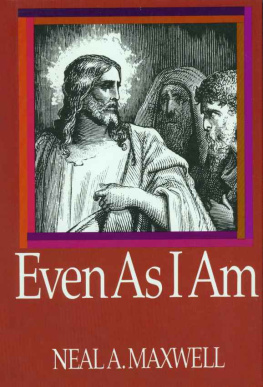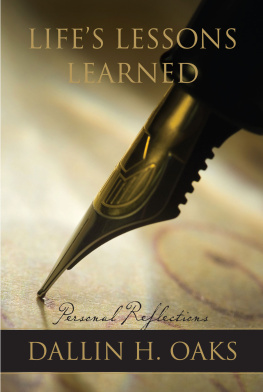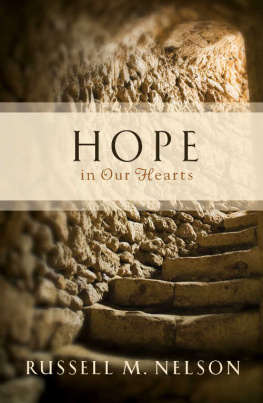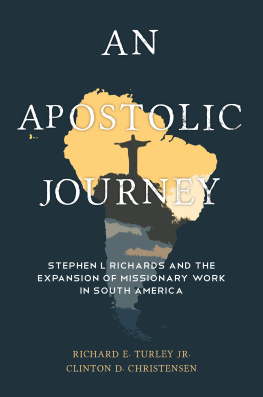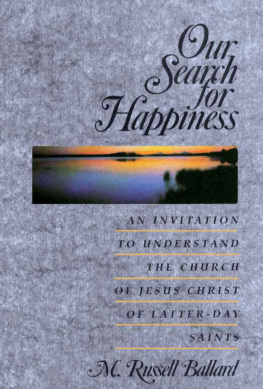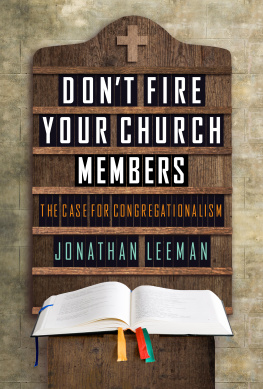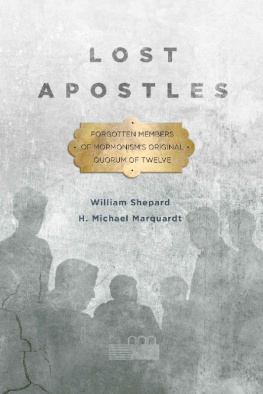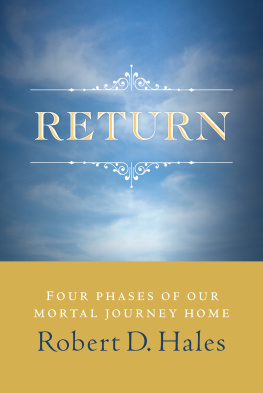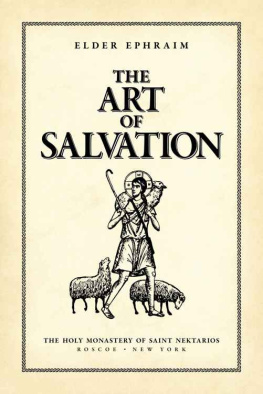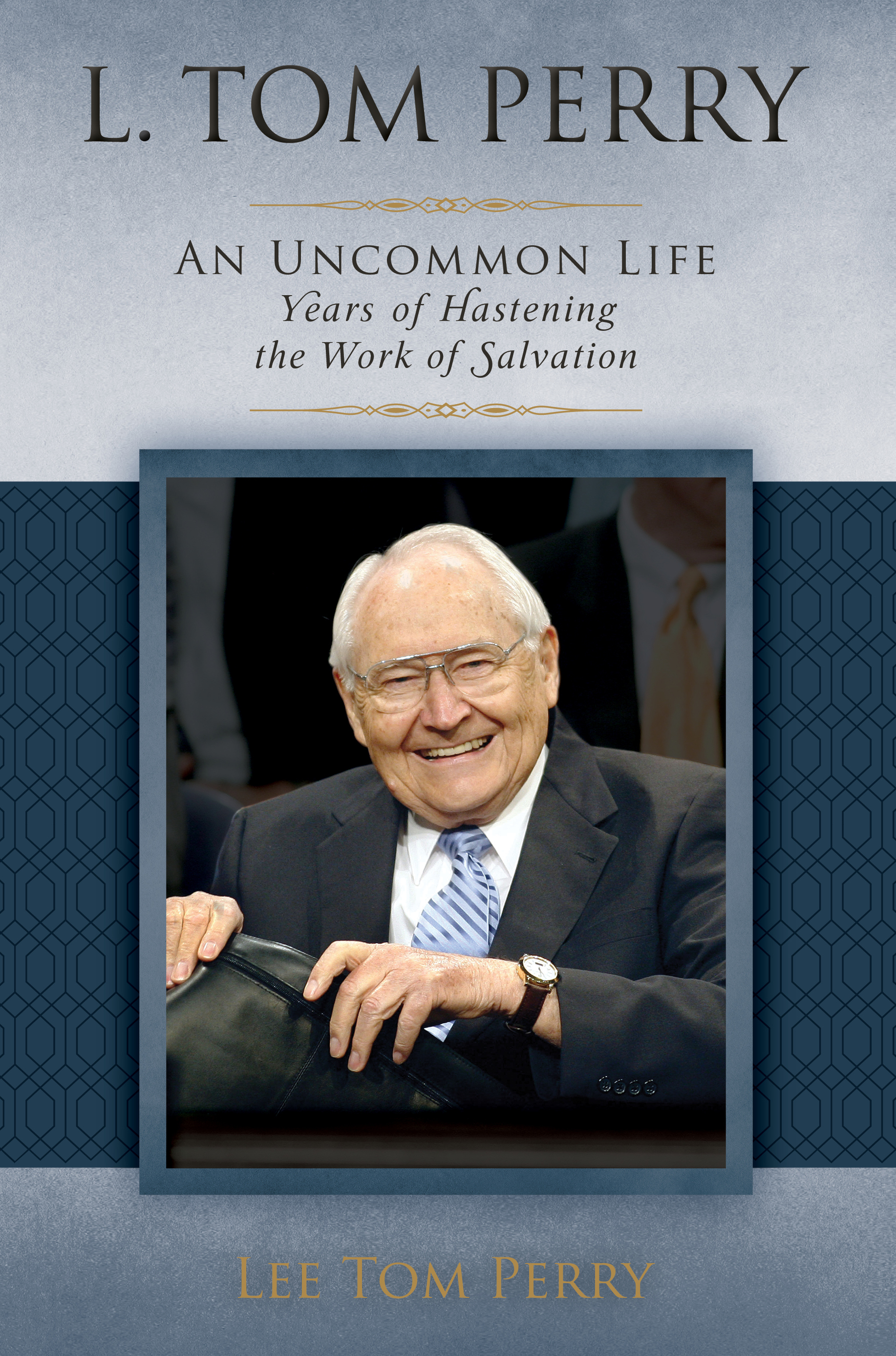Contents
Foreword
As I have read and reread this second volume of my husbands biography, I have been impressed by how well Lee captures Elder Perrys four-decade apostolic ministry and authenticates his love of God, family, and country. Lee also makes evident other aspects of my husbands personalityhis enthusiasm, discipline, organizational skills, work ethic, optimism, financial acumen.
Meeting and marrying Elder Perry fulfilled a blessing given to me by my father in the fall of 1975 when I felt a special need. Dad blessed me that I would have a glorious year. As it turned out, not only was that year a glorious one but our thirty-nine years of marriage that followed were even more glorious. What a privilege and blessing to be married to this remarkable man, a special servant of Jesus Christ.
In the early years of our marriage, we would drive to assignments up to seven hundred miles away in order to spend the time together. I read to him family biographies, biographies of Church leaders, visiting with him as he drove. He slept when it was my turn to drive, but we were together, and I was happy to assist him in any way I could.
I was privileged to share in his experiences in stake and regional conferences and to meet the people he met. After calling a new stake president, Elder Perry always held a leadership training session. I was often invited to kneel with the former and new presidencies as he petitioned the Lord on their behalf as they assumed their new roles.
Elder Perry often said there were three things he didnt like to dosit in meetings, travel, and give talks. Yet that was his life during his ministry, and he never reflected this dislike in his behavior. It was his nature to be cheerful, enthusiastic, with a strong sense of responsibility and desire to serve the Lord to the best of his ability. He enjoyed being with the members of the Church. He took time to shake hands both before and after meetings. He usually walked to the office, sometimes going through Temple Square, where he would greet the sister missionaries, much to their delight.
Elder Perry was disciplined. He was always trying to work with greater efficiency. He had a nightly routine of preparation for the next day, so he could leave for the office by 7:00 a.m. He liked time for prayer and preparation before his meetings started. He rarely returned home before 5:00 or 5:30 p.m. The last five or six years, he had me pick him up at the office (he disliked climbing the hill to our condo). Often, before leaving the office, we would sit across the desk from each other and discuss the events of the day, go over our calendar to review the weeks ahead, and count our blessings.
Lees account gives a sampling of the considerable number of assignments fulfilled by Elder Perry, which took him to sixty-two countries and island nations. He visited some of those areas between ten and twenty-five times. I was privileged to be with him on most of those visits, including the dedication or rededication of more than thirty temples, and saw with him the joy on members faces.
Mission presidents seminars in many parts of the worldfrom Canada to South Africa, from Thailand to Russia, and points in betweenwere perhaps our most anticipated assignments. Elder Perry loved those who were on the front lines of missionary work. We were always inspired by the devoted service of mission presidents and their wives as they left their comfort zones, families, and careers to serve wherever they were called.
Elder Perry revered the prophets he served with, and he had a deep love and regard for the Brethren in his Quorum. He said of the then-youngest five members of the Twelve that there have never been better.
My husband and I had a wonderful life together. It was not difficult to be a supportive wife. He returned my love, wanting me to be with him at every event and every assignment possible. The feeling was mutual. I was deeply humbled when he would tell me I had been saved for him. He was content and happy just to be with me.
Because of him, I share his family of three children and their spouses, fourteen grandchildren, and sixteen great-grandchildren, all of whom I dearly love. I am also blessed by his extended family, and he was gracious and giving with mine. He often said about my parents and family, This isnt a family; its a tribe. Both our families were greatly blessed by his service to them.
This uncommon man was the light and love of my life. His years of hastening the work of salvation are portrayed beautifully in Lees masterful account of his apostolic ministry, a ministry in which Elder Perry exemplified in every way the strong witness he so often bore: God lives. Jesus is the Christ, the Savior of the world. This is His work in which we are engaged.
Barbara D. Perry
Preface
This is the second volume of a two-volume biography of my father, Elder L. Tom Perry. In the preface to the first volume, Years of Preparation, I explained that dividing Elder Perrys biography into two volumes was a decision I made and he endorsed, mostly to aid the telling of a life story that was strongly influenced by the two remarkable women with whom he shared his adult lifeVirginia, his first wife, who passed away within months of his call to serve as a member of the Quorum of the Twelve Apostles, and Barbara, his wife for thirty-nine of his forty-one years as apostle. It is Sister Barbara Perry most Church members know as Elder Perrys constant, equally energetic companion, and it is her copious journals that bring a unique level of detail and coherency to the story of Elder Perrys long ministry. At many key moments, it is through her eyes that we see Elder Perry hastening the work of salvation as one of the Lords chosen apostles.
The publication of this volume has experienced several delays, even a few headwinds, but its becoming a reality fulfills a promise I made to my father that I have striven to keep. It was never my intent that the gap between the two volumes be so long, and I apologize for my inability to hasten the telling of the rest of Elder Perrys story. I have reconciled myself to the possibility that interest in his life may have diminished with time, but I remain hopeful that others will see, as I see, that the lessons of his life are timeless.
One tender mercy for which I am deeply grateful is that my father was able to read all of the first volume of his biography and seventeen of the twenty-two chapters of this second volume before he passed away. For someone who was constantly looking ahead, he thoroughly enjoyed reflecting back on his uncommon life. We had many sweet moments together between June 2014 and May 2015 when most of this volume was written. Surprise and wonder would often bring a bemused smile to his face, and then he would look down and shake his head back and forth as he considered the improbabilities of his life in aggregate. Then, ever the humble, unassuming servant, he would express tender feelings about how honored and blessed he was that the Lord had entrusted him with so many opportunities to hasten His work.
Lately, Ive been thinking a lot about leadership and the way my father led, especially how others were so naturally drawn to him. He had an amazing capacity to amplify the messages of prophets he served with, whether President Spencer W. Kimballs call to lengthen our stride, President Ezra Taft Bensons charge to read the Book of Mormon, President Howard W. Hunters invitation to visit the house of the Lord and keep our recommends current, President Gordon B. Hinckleys challenge to stand a little taller and be a little better, or President Thomas S. Monsons appeal to rescue others. Like the noble United States marine he was, my father could rally the troops and accomplish more than others thought possible. Near the end of his life, Elder Perry turned his attention to uniting the leaders of other religious faiths in support of the cause of religious liberty. His humanity and outreach removed barriers and built bridges across historical religious divides, as he became someone other religious leaders embraced and took into their confidence. This, too, hastened the work of salvation.


